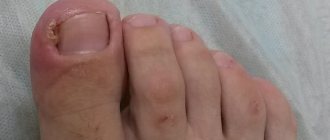Bad breath, which can become a constant companion of a person, can ruin relationships with others and reduce self-esteem. This condition is called halitosis, or halitosis. It is not an independent disease, but is one of the important symptoms of pathologies of the oral cavity and internal organs. You can drown out the stench with mints, spray or chewing gum, but this will not get rid of the problem. We need comprehensive diagnostic measures and subsequent elimination of the causes of halitosis.
Why does there be an unpleasant odor?
The oral cavity is the beginning of the digestive tract. It contains many bacteria; saliva contains enzymes that can break down carbohydrates. Therefore, after waking up, all people have bad breath. But this condition is not considered a pathology; it is enough to brush your teeth for the smell to disappear.
A persistent unpleasant aroma appears after eating dishes with garlic, onions, and some spices. When alcohol is abused, the sour stench persists for a day or more, which is associated with the metabolism of ethyl alcohol in the liver and the release of its vapors through the lungs.
A large number of unpleasant aromas accompany diseases that affect metabolism. In patients with diabetes who do not follow a diet or use insulin incorrectly, when ketone bodies accumulate in the blood, the smell of acetone appears on their breath. People suffering from kidney failure will repel those around them with the unpleasant aroma of urea, which the kidneys cannot remove from the body.
Common causes in adults are pathologies of the digestive tract. Halitosis is caused by:
- gastritis with high acidity;
- stomach ulcer, duodenal ulcer;
- cardiac sphincter insufficiency;
- esophageal diverticula;
- malignant tumors of the stomach or esophagus.
Respiratory diseases can also cause an unpleasant odor. Air from the lungs passes through the oropharynx, so it can partially leave the body through the mouth. It smells unpleasant with purulent diseases of the sinuses, chronic runny nose or tonsillitis.
Diagnostics
With the problem of bad breath, patients usually turn to a dentist or gastroenterologist. The doctor conducts a diagnostic complex according to his profile, and, if necessary, prescribes consultations with related specialists. To detect many dental diseases, a visual examination of the oral cavity is sufficient. For halitosis, the following laboratory and instrumental methods are used:
- ENT examination.
Standard examinations are performed - anterior and posterior rhinoscopy, pharyngoscopy, indirect laryngoscopy. During the examination, the doctor takes a swab from the throat and nose for analysis. If there are changes in the tonsils, it is necessary to carry out bacteriological culture of the plaque. - X-ray examination.
An orthopantomogram is recommended for dental diseases to assess the extent of the process. X-ray examination of the gastrointestinal tract with contrast is informative in the diagnosis of ulcers, diverticula, and neoplasms. X-ray of the paranasal sinuses is a method of confirming sinusitis. - Endoscopic methods
. EGD is used for suspected chronic gastritis. Upon examination, hyperemia of the gastric mucosa, the presence of erosions, and impaired tone of the cardiac and pyloric sphincter are determined. Bronchoscopy is necessary to confirm bronchiectasis. - Analyzes
. A hemogram is prescribed to quickly identify signs of an inflammatory process. A biochemical blood test can detect dysproteinemia, increased creatinine and urea levels, and cytolysis syndrome. When assessing coprograms, attention is paid to the amount of neutral fats and undigested muscle fibers.
Dental causes of halitosis
When bad breath appears, disease of the teeth or gums is first suspected. Bacteria use leftover food in the mouth to feed themselves. If you brush your teeth incorrectly or completely abandon this procedure, a large amount of plaque accumulates in your mouth. Its rotting causes a repulsive odor. If plaque is not removed for a long time, dense tartar forms, and the stench persists for a long time.
Caries and tooth decay can also cause an unpleasant odor. These are areas where large numbers of microbes accumulate. The breath of people who do not remove decayed tooth roots in a timely manner has a strong smell. A stench can occur when wearing braces, dental plates, dentures, under which food debris accumulates. Any foreign body in the mouth requires additional cleansing.
The condition of the oral cavity is affected by the production of saliva. In some diseases it is not liquid enough. Dryness of the oral mucosa occurs, self-cleaning processes are disrupted and bacterial growth is activated. A similar mechanism works in hot weather or when playing sports, if you actively breathe through your mouth.
Smoking also contributes to the appearance of halitosis. Components of tobacco smoke settle on the teeth and combine with soft plaque. Dry mouth contributes to changes in the composition of saliva and an increase in its viscosity. You can get rid of the smell only by defeating a bad habit.
What do different types of smell mean?
Unpleasant odors are caused by several types of volatile compounds produced by anaerobic bacteria. They use food debris on the tongue, between teeth and in carious cavities as a nutrient medium. Depending on the predominant compound, the character of the odor changes. Some of them suggest the pathology that caused halitosis:
- sour aroma – stomach diseases, gastritis or ulcers;
- feces, rotten cabbage - oral pathology, caries;
- smell of urine - kidney failure;
- the smell of ammonia or rotting apples – diabetes;
- rot, rotten meat - esophageal diverticulum.
You can find additional symptoms that will accurately indicate the cause of halitosis. If you have stomach pathology, you will experience pain between snacks. Diabetes mellitus is accompanied by excessive urination, dry mouth and thirst. Caries may not appear for a long time, but in advanced forms toothache appears.
Given the variety of causes, diagnosis, prevention and treatment of halitosis can be performed by doctors of different specialties. You need to see a dentist to get rid of dental diseases, but in other cases you will need to consult an endocrinologist, therapist or nephrologist.
Pharmaceutical preparations for bad breath.
Pharmacies offer a number of products to help cope with unpleasant odors. Before purchasing, be sure to check that they have antibacterial properties, regardless of the type.
- lollipops will easily freshen your breath for a couple of hours due to their antiseptic properties, which help destroy even bacterial membranes;
- balm contains chlorhexidine, which destroys all bacteria, and essential refreshing oils will make your breath fragrant;
- spray has antimicrobial properties, refreshing the oral cavity and simultaneously providing a disinfectant effect.
Ways to combat unpleasant odor
It is not always possible to independently guess that your breath smells bad. A person does not perceive an unpleasant aroma, so he can judge its appearance by indirect signs. If you have any suspicions, you can use the edge of a spoon to collect plaque from your tongue and smell it. The condition of the saliva is judged by licking the wrist and waiting for it to dry.
You can get rid of an unpleasant odor using traditional methods. At home, a decoction of dill is used to rinse the mouth. At home you can prepare an infusion of medicinal herbs with anti-inflammatory and antibacterial effects:
- chamomile;
- Oak bark;
- sage;
- mint;
- calendula;
- St. John's wort.
At home, a decoction is prepared from a mixture of several herbs to increase effectiveness. The infusion must be highly concentrated to suppress the growth of bacteria and cleanse the oral cavity.
If halitosis is associated with eating foul-smelling ingredients, parsley or celery root will help get rid of it. They block foul odors, and chewing the fibrous structure cleanses the teeth. Observance of a drinking regime relieves halitosis. Clean water cleanses the oral cavity and keeps saliva in a liquid state.
The reason why these methods do not help are pathologies of digestion and metabolism. You can get rid of them at home only under the guidance of a doctor.
Treatment of digestive diseases
If the oral cavity is sanitized, but the smell remains, you need to contact a gastroenterologist. Before treating halitosis, an examination will be carried out to find the cause of the disorders. Gastritis and ulcers are associated with poor diet, but inflammation of the gastric mucosa is supported by Helicobacter bacteria. You need to get rid of them comprehensively.
To do this, the doctor will prescribe the following groups of medications:
- antacids – to reduce acidity;
- antibiotics – drugs to kill bacteria;
- healing agents - bismuth nitrate or De-nol to restore the mucous membrane.
In the treatment of cardiac sphincter insufficiency, when the opening between the esophagus and the stomach does not close, antacids are also used, supplemented with prokinetics that improve peristalsis. Treatment of digestive diseases is impossible without following a special diet.
In what cases is it necessary to consult a doctor?
It is necessary to consult a dentist or gastroenterologist if additional symptoms appear along with a bitter odor. Among them:
- nausea and vomiting;
- pain in the right hypochondrium;
- intestinal disorder;
- heaviness in the stomach;
- pain in the gums;
- yellowness of the skin.
Without laboratory tests, it is quite difficult to prescribe effective treatment to a patient, so in special cases the doctor must conduct diagnostics, which includes ultrasound of the abdominal cavity, computed tomography and gastroscopy.
How to improve your oral health
Good hygiene helps get rid of bad breath. If the cause is dense tartar, you need to visit the dentist and remove it mechanically. The toothbrush is powerless in this case.
Any dental defects must be treated. Carious cavities are cleaned and filled, and rotting tooth roots are removed. If necessary, prostheses are installed.
To get rid of the smell, you need to change your toothbrush and choose the right toothpaste. The brush should have medium hardness in order to clean the teeth well and not injure the gums. For better oral hygiene, you can buy a special tongue brush. Toothpaste is chosen based on gum sensitivity and related problems. The dentist will help you choose the product.
To thoroughly clean the spaces between teeth, it is not recommended to use wooden toothpicks. A special thread or brush will do the job better. Some threads contain mint fibers that add a pleasant aroma to your breath. And silver ions will stop the proliferation of pathogenic bacteria.
Teeth should be brushed morning and evening. Before going to bed, after hygiene procedures, you do not need to eat. Leftover food at night will become a breeding ground for the proliferation of microorganisms that damage tooth enamel.
Prevention
The best prevention of halitosis is following all the rules of hygiene: choosing the right brush and toothpaste, brushing your teeth and tongue twice a day, using floss and rinses, and regular visits to the dentist. In addition to these procedures, it is important to ensure that the diet is balanced and the intake of fluid into the body is sufficient.
Eliminating other causes of unpleasant odor
It is more difficult to get rid of bad breath that is not related to dentistry. If the cause is metabolic disorders, treatment may take a long time. With diabetes, it is important to achieve stable blood glucose levels. Then the ammonia aroma will not bother you. To do this, patients with type 1 disease carefully select the dosage of insulin, and for type 2 diabetes mellitus, they are prescribed a balanced diet and medications to lower blood glucose.
For those with severe kidney problems, the only way to eliminate the smell of urea is to undergo hemodialysis. This is a method of artificial purification of blood plasma, which helps get rid of metabolic products.
Treatment of tonsillitis and respiratory pathologies is carried out with antibiotics. But with the chronic course of the pathology, this is a long process.
The most common cause of bad breath is improper oral care. By visiting the dentist at least once a year and choosing the right brush, paste and floss, you can avoid the onset of halitosis or treat it at an early stage.










